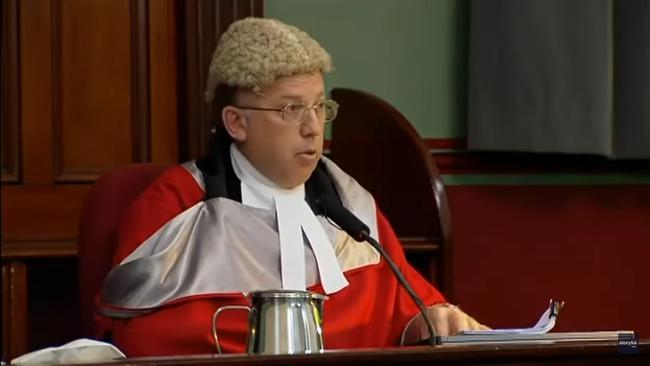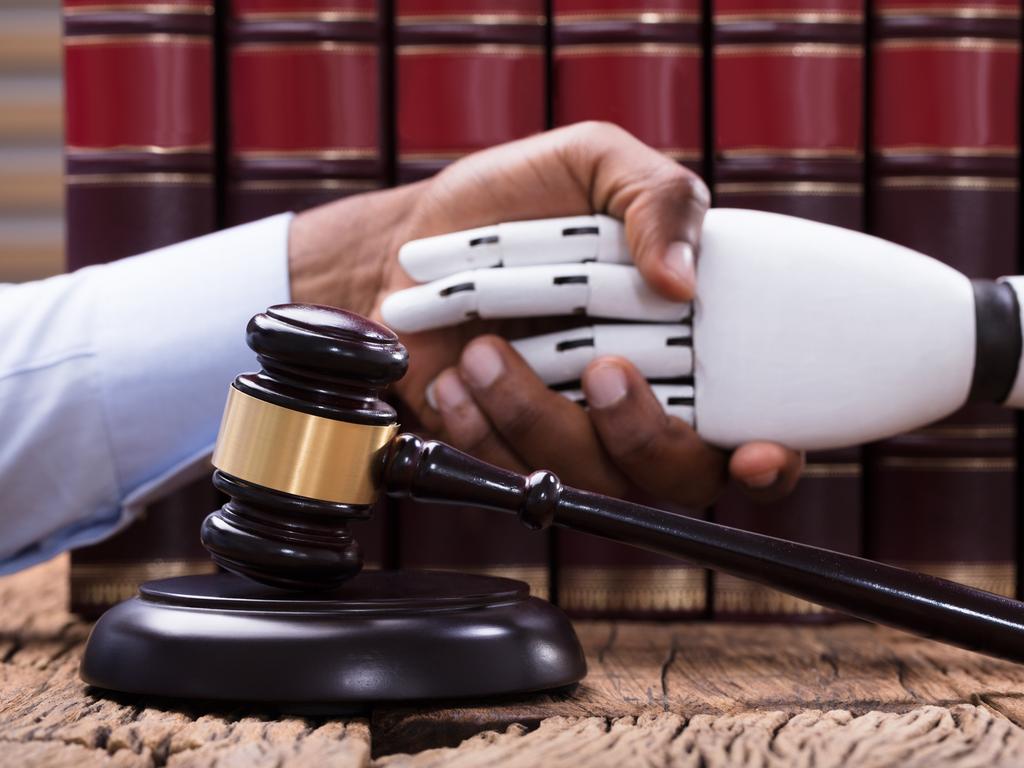Seven ‘random’ tips for judges from High Court justice Robert Beech-Jones
Robert Beech-Jones’s seven ‘random’ tips for judging include advice about making jokes, calling witnesses liars and avoiding secondary trauma from murder cases.

Australia’s newest High Court justice has cautioned new members of the bench to “never call a witness a liar” unless necessary, avoid writing jokes in judgements, and beware secondary trauma caused by intense murder cases, as he releases his seven “random” tips for judging.
Justice Robert Beech-Jones, in an address to the National Judicial Orientation Program last month, told new judges that the “single greatest concern” for any judge is their number of outstanding judgements, and instructed them to “just keep writing”.
“You can easily trace a judge’s mood by the number of outstanding judgments they have at any given time,” he said, telling the crowd that if they become “stumped” when writing a judgement, first “start with a chronological set of facts”.
“There are not that many legal problems that remain knotty after the facts are found,” he said. “Often, when you have found the facts, a lot of the permutations that worried you simply fall away.”
Beech-Jones became the newest member of the High Court late last year after Stephen Gageler was elevated to replace the outgoing Chief Justice Susan Kiefel, and he slotted into Gageler’s empty role.
In his speech, he advised the judges that getting “rolled on appeal” was simply “a fact of life” and “almost always it is not a reflection on the judge at the first instance.”
He also warned judges that critical media coverage is inevitable, and encouraged them to “let the dogs bark while the caravan rolls in”.
“Open justice means media coverage, media coverage sometimes means critical media coverage and critical media coverage sometimes means unfair and inaccurate coverage,” he said.
Beech-Jones said judges are “meant to resolve disputes, not create them” and instructed his audience to “never call a witness a liar unless you have to” or else risk unnecessary irreparable damage to one’s reputation.
“You will be invited in numerous cases to find that a witness is a liar of some form or another, such as ‘a bald-faced liar’, ‘a congenital liar’, ‘a pathological liar’, ‘a manipulative liar’ and so forth,” he said.
“Even if you think the submission is right, can I suggest you resist going along with it unless you really have to. A finding by a senior judge that a party or a witness lied can
be devastating for their reputation and them personally. Witnesses can be professionally and emotionally affected by the stigma.”
He also cautioned the judges against labelling lawyers appearing before them “incompetent or negligent unless it is necessary.”
“I find it hard to see the point of a judgment that reads: ‘I might have found for party Y, but their lawyers were hopeless and didn’t run this other case which I, the Judge, have conceived of’,” he said. “This gives the judgment a provisional quality and leaves the losing litigant thinking they should have won.”
He said “of course there are some contexts where the judge must opine on the lawyer’s performance” but that judges should “avoid a vent over your frustration about the legal representatives if you can.”
“The venting needs to be left for kicking the cat, metaphorically of course,” he said.
Beech-Jones told the judges to avoid engaging with vexatious litigants, but instead “invite them to address the particular point and stay quiet.”
“Our job is not to make vexatious litigants feel comfortable in court or think that we are providing them with a platform,” he said. “They are entitled to a reasonable opportunity to be heard but no more than that.”
Keeping the trial moving is another important role of a judge, Beech-Jones said, claiming that “if the participants in a trial get the impression that time is unlimited, then it will never end.”
“Setting the tone for a trial is crucial,” he said. “If you can, give your rulings straight away. If you can’t ex temp them, try ruling with reasons to come later. If you need to deliver your reasons orally during the trial, do it before 10am or when the jury has morning tea or have gone home for the day.”
He said he had noted some prosecutors have stopped “stacking up witnesses outside the court” and said this could impede on the efficiency of the trial.
“This meant that when defence counsel undertook a short, efficient cross-examination, we would get to 12.30pm to be told that there were no more witnesses for the day, so everyone would go home,” he said.
“I know it’s a hassle for people to hang around a courtroom waiting to give evidence, but you preside over trials of serious charges such as murder, sexual assault and drug trafficking, and that inconvenience has to give way to the interests of justice.”
Beech-Jones cautioned the judges against turning to “alcohol and bad moods” when affected by graphic cases, saying “you never know which case will affect you”.
“If something is getting to you, talking through the issue and, if necessary, seeing someone about it is a reflection of your strength as a judge because all good judges have self-insight,” he said.
Click here to sign up to Ipso Facto, The Australian’s new legal affairs newsletter.








To join the conversation, please log in. Don't have an account? Register
Join the conversation, you are commenting as Logout